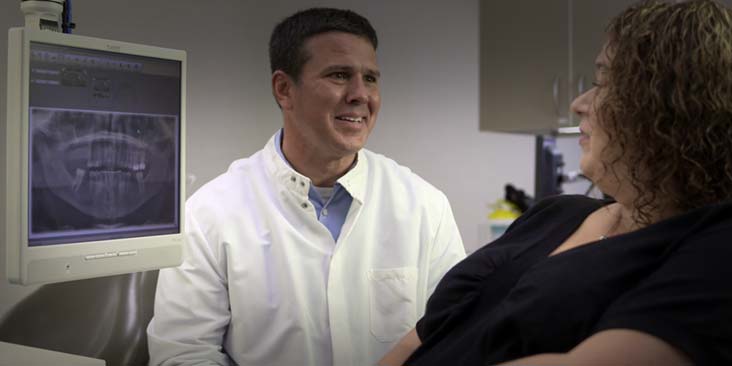
Caries
Dental caries refer to the decay and destruction of a tooth or bone, resulting in the development of tiny holes in the tooth enamel. Caries is more commonly known as tooth decay or cavities, and is a very common dental issue with more than 3 million cases of decay per year. Caries develop when plaque gathers on the surface of a tooth and is not removed. Because the plaque is not removed, sugars from foods react with the bacterial plaque and the plaque produces acid. When this acid remains on the tooth, it dissolves the outer protective layer of the tooth (called enamel) and the tooth begins to break down over time.
Caries are more common in children since the enamel on primary (baby) teeth is much thinner than the enamel on permanent teeth. As a result, early childhood caries and baby bottle tooth decay are two very common dental issues in young children.
How to Prevent Caries
You can prevent caries by maintaining a daily oral hygiene routine that consists of brushing twice a day for at least two minutes, flossing daily, and using an anti-cavity rinse to strengthen tooth enamel. Limiting foods and drinks that are high in sugar also helps prevent caries. When possible, brush your teeth after eating a snack or meal high in sugar so the harmful sugars and bacteria are promptly removed.
How to Treat Caries
Caries are often treated with dental fillings. A dentist will clean out the damaged tooth area and remove the bacteria, then seal the cavity with a biocompatible filling material. If the tooth decay has spread deeper into the tooth and the bacteria reaches the dental pulp (“nerve”) inside the tooth, a root canal procedure may be necessary.
Our Services
Dental Associates offers complete family dentistry plus specialty services like orthodontics, oral surgery, and dental implants. Click to learn more.
Dental Associates Locations
We have over a dozen convenient locations in Wisconsin. From Kenosha and Racine, up through Milwaukee, Fond du Lac, and Appleton to Green Bay.

